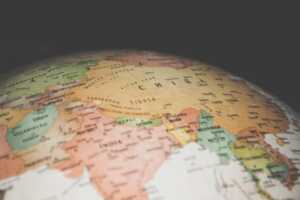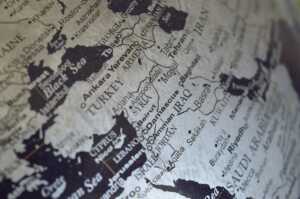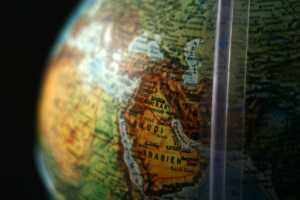In today’s fast-evolving global landscape, the West’s role in geopolitics is being closely scrutinized. The question of whether the Western world still holds sway over international relations has captivated political analysts, global affairs enthusiasts, and social media influencers alike. Does the West truly maintain an unchallenged position in global politics, or are we witnessing a shift towards a more diverse distribution of power? This exploration dives deep into this topic, addressing historical trends, contemporary dynamics, and future projections, offering a comprehensive view of the West’s geopolitical influence.
Historical Perspectives on Western Dominance
The roots of Western dominance in geopolitics stretch back centuries. Europe’s colonial expansion, beginning in the 15th century, laid the foundation for Western control over large swaths of the globe. Empires such as the British, French, and Spanish extended their influence across continents, exporting Western ideologies and systems of governance. These historical ventures established the West as a formidable force in world affairs.
Key events have reinforced this dominance over time. The Industrial Revolution propelled Western nations to unprecedented economic heights, giving them leverage in geopolitical negotiations. The two World Wars, though devastating, solidified the United States as a superpower, particularly after its role in establishing the post-war international order. The Bretton Woods Conference and the formation of institutions like the United Nations and NATO underscored the West’s central role in shaping global governance.
Geopolitical strategies have also played a significant role in maintaining Western dominance. The Cold War era was characterized by a binary division between the Western bloc and the Soviet Union, with the former promoting democracy and capitalism. This period saw the Western world extensively involved in global affairs, establishing military alliances, and influencing political outcomes in various regions. Through these strategies, the West entrenched itself as a key player in international politics.
The Changing Global Political Landscape
In recent years, significant geopolitical shifts have challenged the notion of unassailable Western dominance. Emerging powers, particularly in Asia, have begun to assert their influence on the international stage. Countries like China and India are experiencing rapid economic growth, positioning themselves as key players in global governance. This rise of non-Western powers is reshaping the dynamics of international relations.
China’s Belt and Road Initiative serves as a prime example of this shift. Through vast infrastructure projects and strategic investments, China is expanding its reach across continents. This initiative not only boosts China’s economic influence but also challenges the traditional Western-centric model of globalization. Similarly, India’s growing technological prowess and diplomatic engagements highlight its increasing role in shaping global policies.
The impact of these non-Western powers on global governance is evident in various arenas. International organizations, previously dominated by Western perspectives, are accommodating a broader range of voices. The G20, for instance, includes both Western and non-Western members, facilitating dialogue on global economic issues. Such developments indicate a gradual move towards a more multipolar world order, where power is distributed among multiple influential entities.
Western Responses and Adaptations
Faced with these evolving dynamics, the Western world is not standing idle. Instead, it is adopting strategies to maintain influence and relevance in the changing geopolitical landscape. One approach involves strengthening alliances and partnerships. The recent revival of transatlantic ties between the United States and European nations signifies a concerted effort to present a unified front on global issues.
Western countries are also investing in innovation and technology to retain their competitive edge. Initiatives focused on renewable energy, digital transformation, and scientific advancements are designed to bolster economic growth and maintain global leadership. By prioritizing innovation, the West aims to address pressing global challenges and reinforce its role as a driver of progress.
Furthermore, the Western world is engaging in diplomatic outreach to foster collaboration with emerging powers. Dialogues and forums that promote mutual understanding and cooperation are becoming more frequent. These efforts reflect a recognition that collaboration, rather than confrontation, is essential for navigating the complexities of today’s geopolitics.
Critiques and Counter-arguments
Critics of the notion of continued Western dominance argue that the world is indeed moving towards a more equitable distribution of power. They highlight the growing influence of regional blocs, such as the African Union and ASEAN, which advocate for greater agency in global decision-making. These blocs challenge the idea that Western countries are the sole architects of international policies.
Additionally, some argue that the West’s historical legacy, characterized by colonialism and interventionism, has led to an erosion of its moral authority. Issues such as climate change, inequality, and migration often require collective solutions that transcend traditional power structures. Critics contend that a multipolar world order, where diverse perspectives are considered, is more suited to addressing these complex challenges.
However, proponents of Western leadership emphasize the enduring values and institutions that the West has championed. Democracy, human rights, and the rule of law remain cornerstones of global governance. Supporters argue that the Western world continues to provide a framework for stability and cooperation, making it an indispensable player in shaping international policies.
Future Projections and Implications
Looking ahead, the future of global geopolitics remains uncertain. The interplay between Western and non-Western powers will shape the trajectory of international relations. If current trends persist, we may witness the emergence of a truly multipolar world, where power is distributed among several influential actors.
This shift could have far-reaching implications. A more diverse distribution of power may lead to increased cooperation on global challenges, fostering innovative solutions. However, it could also result in heightened competition and tensions as different powers vie for influence. Navigating this complex landscape will require diplomacy, adaptability, and a willingness to find common ground.
For political analysts and enthusiasts, this evolving scenario presents both opportunities and challenges. Engaging in informed discussions, staying abreast of developments, and fostering cross-cultural understanding will be essential for comprehending the nuances of modern geopolitics.
Conclusion
In conclusion, the question of whether the Western world is still in charge of geopolitics is both complex and multifaceted. While historical trends underscore the West’s prominent role, contemporary shifts point to a more dynamic distribution of power. The rise of non-Western powers and the ongoing responses from the West are reshaping the landscape of international relations.
As political analysts, global affairs enthusiasts, and influencers, it is crucial to remain engaged in this discourse. The evolving nature of global politics demands thoughtful analysis, open dialogue, and a willingness to adapt to new realities. By understanding the intricacies of these shifts, we can contribute to a more informed and interconnected world.
For those who wish to explore this topic further, there are numerous resources available, ranging from academic articles to expert analyses. Engaging with diverse perspectives will enrich our understanding and enable us to contribute meaningfully to discussions about the future of geopolitics.





















